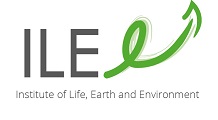Thesis defence by Anne-Sophie Voisin
- https://ilee.unamur.be/events/thesis-defence-by-anne-sophie-voisin
- Thesis defence by Anne-Sophie Voisin
- 2018-05-02T15:00:00+02:00
- 2018-05-02T17:00:00+02:00
- Anne-Sophie will present the results of her PhD thesis she conducted in the Research Unit of Environmental and Evolutionary Biology (URBE) under the supervision of Frédéric Silvestre and Karine Van Doninck.
- When May 02, 2018 from 03:00 PM to 05:00 PM (Europe/Brussels / UTC200)
- Where Auditorium L12 – Faculty of Arts
- Contact Name
-
Add event to calendar
 iCal
iCal
 Endocrine disrupting chemicals (EDCs) can mimic or interfere with endogenous hormone processes that are crucial for the normal development of organisms. Nevertheless, they are omnipresent in everyday products and pollute our aquatic environments. I investigated the delayed effects of ethinylestradiol (EE2), a synthetic estrogen used in oral contraceptives, on the development of mangrove rivulus, Kryptolebias marmoratus. This fish is the world’s only known self-fertilizing hermaphrodite, which makes it possible to produce genetically identical individuals and focus on environmental effects.
Endocrine disrupting chemicals (EDCs) can mimic or interfere with endogenous hormone processes that are crucial for the normal development of organisms. Nevertheless, they are omnipresent in everyday products and pollute our aquatic environments. I investigated the delayed effects of ethinylestradiol (EE2), a synthetic estrogen used in oral contraceptives, on the development of mangrove rivulus, Kryptolebias marmoratus. This fish is the world’s only known self-fertilizing hermaphrodite, which makes it possible to produce genetically identical individuals and focus on environmental effects. Months after exposure to EE2, hatchlings showed differences in compensatory growth, fecundity and steroid hormone levels. To further understand the underlying molecular mechanisms, I measured the proteome and epigenome (methylome) in brain, liver and gonads of adult fish. Usually, estrogen-responsive pathways, such as lipid metabolism, inflammation, and the innate immune system are affected after acute exposure to EE2. I could show for the first time, that these were also affected months after exposure.
Months after exposure to EE2, hatchlings showed differences in compensatory growth, fecundity and steroid hormone levels. To further understand the underlying molecular mechanisms, I measured the proteome and epigenome (methylome) in brain, liver and gonads of adult fish. Usually, estrogen-responsive pathways, such as lipid metabolism, inflammation, and the innate immune system are affected after acute exposure to EE2. I could show for the first time, that these were also affected months after exposure.
My results provide further evidence for the role of DNA methylation in mediating long-term changes in cellular processes resulting from early-life exposures.
 Institute of Life, Earth and Environment
Institute of Life, Earth and Environment
